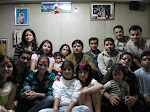Ananta Raj Luitel
Kathmandu:
A serious debate is raging on in the political front on the Nepali Congress (NC) joining the coalition government led by the CPN-Maoists.
Prime Minister Pushpa Kamal Dahal and the leaders of the ruling parties — Maoists and CPN-United Marxist Leninists (UML) — has also been holding discussion on bringing the opposition — NC — into the government.
The Maoists leaders extended an offer to the NC to join the government so as to ensure the smooth running of the Constituent Assembly for the drafting of the Constitution. Maoist chairman and PM Dahal had publicly emphasised on bringing the NC into the coalition government.
However, the NC, the main opposition party, has outrightly rejected the PM’s offer to join the Maoist-led government. President of the NC and former prime minister Girija Prasad Koirala has clearly said that his party is not willing to join the government, but would support the government in all fronts as a constructive opposition.
There is a practice to form a national coalition government during crisis, and the same is true in the transition phase to push forward the peace process. Such a practice is prevelant not only in Nepal, but also in South Africa and other many countries that have adopted the model during crises. Such a national government is required to implement the shared goal of many political parties at the same time in the country.
However, in Nepal the goal of the Maoists is different than the others — the NC and even the UML. The Maoists want to integrate the Maoist combatants into the National Army, while many other parties want to rehabilitate them.
However, there was a national commitment to draft the Constitution on time. They agreed to draft the Constitution within two years.
In a democracy, strong opposition, independence of judiciary and a free press are taken as the pillars of the system. Without these pillars, democracy cannot work effectively because there may not be a check-and-balance in the absence of one of these factors. In the absence of opposition, the government had hiked the prices of goods as there was no strong political party to take up the case. People had to face the eight-party authoritarian regime during the period.
The Maoists leaders, especially the PM, have claimed that they have faith in the multi-party system and do not want to impose a one-party authoritarian regime. But the characteristics shown by the Maoist-led government show that the government wants to interfere on such basic pillars of democracy, and have also been attacking them.
The government has already revealed its plan of attack on the independence of the judiciary by expanding the benches of the Supreme Court without the consent of the apex court, and its belief towards a free press is almost clear.
In the absence of a strong opposition, there will be nobody to raise issues or voice against the government, and in the coming days the role of the opposition would be vital either in the drafting of the Constitution or on making any government policies.
Though there is no provision of an opposition in the Constituent Assembly, the CA isalso working as the Parliament, and without the opposition, the Parliament cannot function smoothly.
If the government makes a bad policy, there should be a strong political party in opposition to take up such issues in order to bring things into balance. Otherwise the government can do anything. During the last one-and-a-half-year period people faced the shortage of fuel and even the problem of black marketing, but there was no political party to take up the issue and ultimately it was the public that faced many problems.
People do not want to face the same problems in the coming days.The drafting of the Constitution is important, but in a democracy, the political players should listen to the people’s problems and that they do not want to face day-to-day strikes.
“Though a general consensus is required to draft the Constitution, the Constituent Assembly is also playing the role of the Parliament. Therefore, a strong opposition is a must. Otherwise the system may not work perfectly,” Chairman of the Human Rights Organisation of Nepal (HURON), Charan Prasain told THT Perspectives. “The opposition is the one of the pillars of democracy, therefore, it is required to raise a strong voice against any unpopular and illogical decision taken by the government,” Prasain added.
Source: The Himalayan Times
Subscribe to:
Post Comments (Atom)


No comments:
Post a Comment